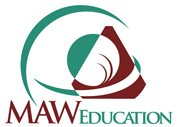Arabic Version of Formative Assessment النسخة العربية لكتيب
Formative Assessment Ideas أفكار في التقييم التكويني
For help in assessing what a child or student already knows, and what you need to teach next, 'Formative Assessment Ideas' is exactly what busy teachers have been looking for.
يلبي كتيب "أفكار في التقييم التكويني" احتياجات الأساتذة المشغولين من خلال مساعدتهم في تقييم المكتسبات القبلية للطفل أو المتعلم وما يجب تدريسه بعد ذلك

Video can’t be displayed
This video is not available.
Special Offers | عرض خاص
Reduced prices for orders of 10 or more copies – contact our team for more information.
تخفيضات عند طلب 10 نسخ أو أكثر - اتصل بفريقنا لمزيد من المعلومات.
Buy One for Each of Your Teachers | احصل على كتيب لكل أستاذ في مؤسستك
- Single PDF Copies – £8.55 (DZD 1586) (EGP 197.85)
- Hard Copy – £12.75 (DZD 2379 ) (EGP 267.65) plus P&P
- Hard Copies Printed to Order
- Bulk Orders Available
Make Your Own Bilingual Book – Save Money When You Buy an English and Arabic Version at the Same Time | كون كتاب ثنائي اللغة: قم بالتوفير واشتري نسخة باللغتين الإنجليزية والعربية في نفس الوقت
- Hard Copy – £17.95 (DZD 3312) (EG 337.95)
You will receive delivery of your PDF purchase within 24 hours of payment.
Evaluating Students’ Needs
Our Arabic formative assessment books provide valuable insights into teaching and learning.
Contents
Formative Assessment – Assessment for Learning
- The Home Visit or the Child’s Initial Visit to School – Learning Starts When We Are Born – What Does the Child Already Know When She First Comes to School?
- Assessment through Observation – Discover Students’ Multiple Intelligences and Their Strengths and Weaknesses
Diagnostic Assessments
- Published Diagnostic Tests – Subjects and Verbal Reasoning
- Students with Additional Needs (Special Educational Needs) – Examples
- Group Assessment – Assess Students’ Multiple Intelligences Using a Rubric
- Authentic Problem Solving and Assessment – Expert Assessment of Real-Life Situations
- Students’ Self-Assessment and Peer Assessment – Let Your Students Help You
- Multiple Intelligences Assessment of Knowledge, Skills, Understanding, and Attitudes
- Creating Your Own Subject-Specific Assessments (Example: English Novel)
- End of Lesson Evaluation – to Help You Plan for the Next Lesson
- Target Setting and Monitoring – Use Assessment to Raise Standards and Set Goals
Summative Assessment- Test and Assessment Results
- Continuous and Comprehensive Assessment – Leading to Accumulative Assessment
- End of Topic Assessment – Recording Students’ Knowledge, Skills, Understanding, and Attitudes
Accumulative Assessment
- Tests and Examinations – Assessment against Criteria Laid Down in the Syllabus
- Different Ways of Assessing – Assessment through Different Tasks
- Collating the Evidence – Tracking Software and a Process Folio – Collecting Evidence and Recording Progress
- Using Assessment to Raise Standards – International Benchmark Tests
Conclusion – Assessment Leading to Planning for the Differentiated Classroom
Getting Started
- Explanations and Definitions
- Recognising Difference – We Are Born Different, and We Develop Differently
- What Do You Know About Your Students?
- Assessment – Building on What Students Already Know and Can Do
- Multiple Intelligences and Learning Styles – Teaching the Same Thing in Different Ways
- Preparing to Write Your Lesson Plan
- Lesson Plan Template
Example Lesson Plans
- Kindergarten
- English Language Learners
- Secondary English 1
- Secondary English 2
- Primary Mathematics
- Secondary Mathematics
- Primary Science
- Secondary Environmental Studies
- Primary Social Studies – Geography
- Secondary Social Studies – History
Also Available in the Changing Education Series
Coming Soon
Future booklets include:
- Teaching English as an Additional Language: Multiple Intelligences Ideas
- Pre-School: Teaching and Learning Ideas for the Under-Fives
